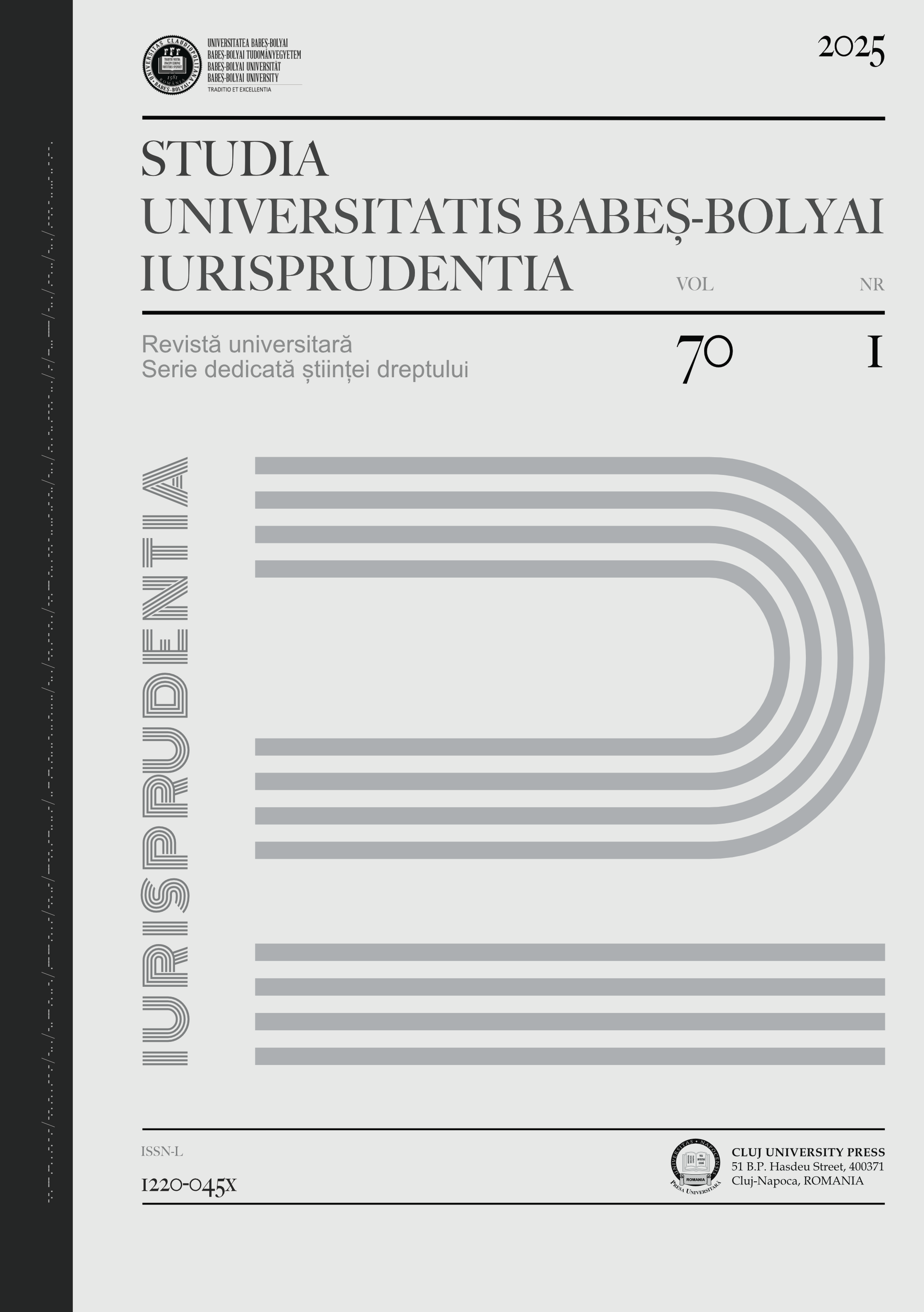Abstract
The civil code has been in force since 2011. It was preceded by an official statement explaining the necessity of adopting a new code. Discursively, it is now a textual sandwich, with the code's text situated between this justificatory discourse and the doctrinal texts that followed the adoption of civil law. Our task is to uncover the legislator's thought process at the time of the code's adoption and to determine whether the code itself transforms into a source of principles and ideas in its own right.
References
CABRILLAC, R., Les codifications, Paris, PUF, 2002.
CARPENTIER, M., Variations autour de l'originalisme, Revue française de droit constitutionnel, nr. 3/2016.
MAZEAUD, D., Loyauté, solidarité, fraternité : la nouvelle devise contractuelle ? în Mélanges offert à François Terré, Paris, Dalloz, 1999.
SENATUL ROMÂNIEI, Expunerea de motive [privind adoptarea Legii] privind Codul Civil, disponibil online: https://www.senat.ro/legis/PDF/2009/09L259EM.pdf, arhiv.: https://perma.cc/Q5KP-488A.
SENATUL ROMÂNIEI, Expunerea de motive […] pentru punerea în aplicare a Legii nr.287/2009 privind Codul civil, p. 11, online:https://senat.ro/legis/PDF/2010/10L688EM.pdf, arhiv.: https://perma.cc/9LYB-NEK7.
VASILESCU, P., Bunele moravuri – o confuziune etică de-drept, SUBB Iurisprudentia nr. 1/2022, p. 12, online: https://doi.org/10.24193/SUBBiur.67(2022).1.1.
VASILESCU, P., Conceptul juridic – o incursiune în jargonul de-drept, SUBB Iurisprudentia, nr. 4/2024, online: https://doi.org/10.24193/SUBBiur.69(2024).4.13-90.
VASILESCU, P., Substanța normativă a definițiilor legale, RRDP nr. 1/2021.

This work is licensed under a Creative Commons Attribution-NonCommercial-NoDerivatives 4.0 International License.
Copyright (c) 2025 Paul Vasilescu

